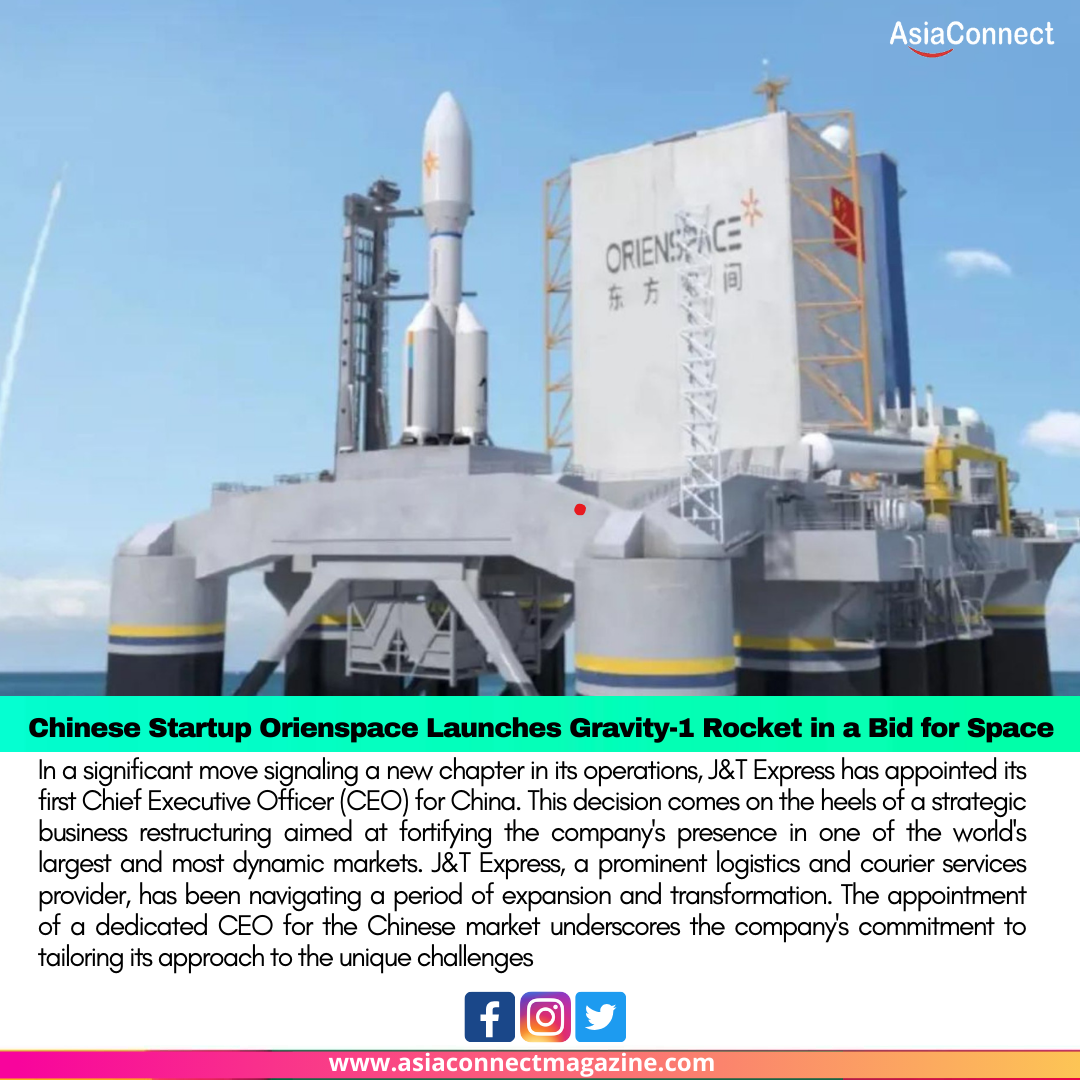In a significant stride towards expanding its presence in the space industry, Chinese startup Orienspace has achieved a milestone with the successful launch of its Gravity-1 rocket. This groundbreaking event marks a new chapter in the country’s growing space exploration endeavors, underlining the capabilities of emerging private players in the space race.
The Gravity-1 rocket, developed by Orienspace, soared into the skies from a launch site in northwest China, carrying both the aspirations of the company and the anticipation of a nation invested in the advancements of its space program. This launch is particularly noteworthy as it signifies a step forward in China’s ambition to diversify its space activities beyond state-led initiatives.
The maiden flight of the Gravity-1 rocket is a testament to Orienspace’s commitment to contributing to the global space exploration landscape. The startup, founded by a group of space enthusiasts and industry experts, has positioned itself as a key player in the emerging space economy, focusing on providing cost-effective and reliable launch services.
The Gravity-1 is a small-scale orbital-class rocket designed to deliver payloads to low Earth orbit. With a payload capacity optimized for small satellite launches, Orienspace aims to cater to the growing demand for affordable access to space for various purposes, including scientific research, Earth observation, and communication.
The success of Orienspace’s inaugural rocket launch reflects the culmination of extensive research, development, and testing efforts. It showcases the company’s technological prowess in designing and manufacturing launch vehicles capable of navigating the complexities of reaching orbit, a feat that only a handful of private entities worldwide have accomplished.
As China continues to invest in its space industry, the emergence of private startups like Orienspace adds a layer of dynamism to the space exploration landscape. This diversification not only fosters healthy competition but also stimulates innovation and efficiency, potentially lowering costs associated with space missions.
Orienspace’s Gravity-1 launch also aligns with global trends in the space sector, where smaller, more agile rockets are gaining popularity for their ability to provide dedicated and cost-effective services for a growing market of small satellite operators. This trend signifies a shift from traditional, large-scale launch vehicles to more versatile and scalable solutions.
The successful mission not only boosts Orienspace’s credibility in the aerospace community but also elevates China’s standing in the commercial space launch sector. As a participant in the burgeoning space economy, Orienspace has the potential to attract international clients seeking reliable and affordable access to space for their satellite deployments.
Looking ahead, Orienspace has ambitious plans to expand its rocket portfolio and enhance its capabilities to meet the evolving demands of the space industry. The company envisions contributing to a future where space access is more accessible and cost-effective, opening up opportunities for a myriad of applications that benefit humanity.
In conclusion, Orienspace’s successful launch of the Gravity-1 rocket marks a significant achievement for the Chinese startup and the broader space exploration landscape. As the space industry continues to evolve, the contributions of innovative and determined private players like Orienspace are poised to play a pivotal role in shaping the future of space exploration, with potential implications reaching far beyond national borders.





